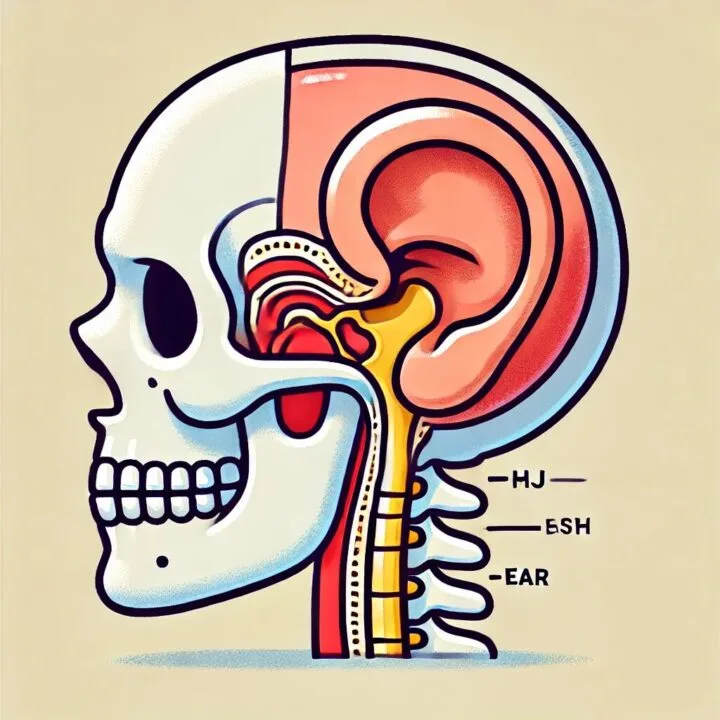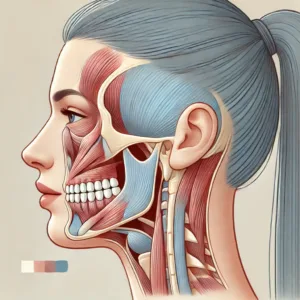TMJ and Tooth Pain: Understanding the Connection
Table of Contents

TMJ and Tooth Pain: Understanding the Connection
Have you ever woken up with a sore jaw or felt a sharp pain in your teeth while chewing? You might be dealing with TMJ issues that are affecting your teeth. It’s not just about having a pretty smile; when your jaw isn’t functioning properly, it can lead to discomfort in your teeth as well. Let’s explore how TMJ and tooth pain are linked and what you can do about it.
What is TMJ?
TMJ stands for temporomandibular joint, which connects your jaw to your skull. When this joint is irritated or inflamed, it can lead to a condition known as TMD (temporomandibular disorder). Think of it like a door hinge that has started to squeak; when it doesn’t work smoothly, it can cause all sorts of problems.
How TMJ Affects Your Teeth
You might wonder how issues with your jaw can lead to tooth pain. Here’s the scoop:
- Muscle Tension: When your jaw isn’t aligned properly, the muscles around it can become tense. This tension can spread to the muscles that support your teeth, making them feel sore.
- Misalignment: If your bite is off, it can change how your teeth come together when you close your mouth. This misalignment can put extra pressure on certain teeth, leading to discomfort.
- Grinding and Clenching: Many people unknowingly grind their teeth or clench their jaws, especially during sleep. This habit can put a lot of strain on the TMJ and lead to tooth pain.
Recognizing the Symptoms
So how do you know if you’re dealing with TMJ-related tooth pain? Here are some signs to look out for:
- Jaw Pain: If you feel pain or tenderness in your jaw, especially when chewing or opening your mouth wide, this could be a sign of TMJ issues.
- Tooth Sensitivity: If certain foods or drinks suddenly make your teeth hurt more than usual, TMJ might be involved.
- Headaches: Frequent headaches that seem to start around the jaw area may also indicate TMJ problems.
- Ear Discomfort: Sometimes, TMJ issues can cause pain that feels like an earache.
- Clicking Sounds: If you hear clicking or popping sounds when moving your jaw, this is a classic sign of TMJ trouble.
Why Does This Happen?
Now that we know what symptoms to look for, let’s talk about why these issues occur:
- Stress: Stress can lead to clenching or grinding teeth without realizing it. This tension puts extra pressure on the jaw joint and can cause pain in both the jaw and teeth.
- Injury: A bump or hit to the jaw can knock things out of alignment and lead to TMJ issues.
- Arthritis: Just like other joints in the body, the jaw joint can be affected by arthritis.
- Misaligned Bite: If teeth don’t fit together properly when closing the mouth, it can create added stress on the jaw joint.
- Poor Posture: How you hold your head and neck can impact jaw alignment too.
Finding Relief from TMJ and Tooth Pain
If you’re experiencing symptoms related to TMJ and tooth pain, there are several ways to find relief:
Home Remedies
For mild cases, try these simple home remedies:
- Warm Compresses: Applying heat to the jaw can help soothe sore muscles.
- Soft Foods: Stick to softer foods for a while to give your jaw a break.
- Relaxation Techniques: Practices like deep breathing or gentle stretches can help reduce stress.
Professional Help
If home remedies aren’t enough, consider seeking help from professionals:
- Dentist Visit: A dentist can assess your symptoms and determine if TMJ is affecting your teeth.
- Mouth Guards: If grinding is an issue, a custom mouth guard can protect your teeth at night.
- Physical Therapy: A physical therapist can teach exercises that strengthen and relax the muscles around your jaw.
- Medications: Over-the-counter pain relievers may help manage discomfort.
- Orthodontic Treatment: If misaligned teeth are contributing to TMJ problems, braces or other treatments may be necessary.
When to Seek Professional Help
While some symptoms may improve on their own, there are times when it’s important to consult a professional:
- If pain lasts more than a few days.
- If eating or speaking becomes difficult due to discomfort.
- If you notice changes in how your teeth fit together.
- If clicking or popping sounds come with pain or limited movement.
Getting help early is key! The sooner you address these symptoms, the better chance you have at preventing more serious issues down the line.
Conclusion
TMJ and tooth pain often go hand in hand, but understanding their connection is crucial for finding relief. By recognizing symptoms early and exploring treatment options—whether through home remedies or professional care—you can take control of your oral health.
If you’re struggling with these issues, don’t hesitate to reach out for help. With the right approach, you can alleviate discomfort and get back to enjoying life without the burden of jaw pain. Your journey toward relief starts now!
FAQs
- Can TMJ cause tooth pain in just one tooth?
Yes, TMJ can sometimes cause localized pain in a single tooth due to pressure changes in the jaw. - How long does TMJ-related tooth pain last?
The duration varies; some people experience temporary discomfort while others may have chronic symptoms without proper treatment. - Can children experience TMJ-related tooth pain?
Yes, children can also experience TMJ disorders and related tooth discomfort; any persistent complaints should be evaluated by a healthcare professional. - Is it possible to have TMJ symptoms without any tooth pain?
Yes, some individuals experience symptoms like jaw clicking or limited movement without noticeable tooth pain. - Can stress alone cause both TMJ and tooth pain?
While stress doesn’t directly cause these conditions, it often leads to habits like clenching or grinding that put extra strain on both the jaw and teeth. Managing stress effectively can help alleviate these symptoms.













Post Comment